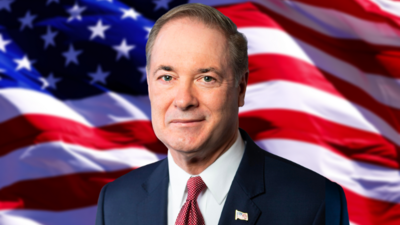Dear Ambassador Schwab:
Opening the Korean market to wholesome, delicious U.S. beef is of utmost importance to Montana’s farmers and ranchers, as well as to beef producers and processors throughout the United States. I appreciate your efforts to achieve this access, and encourage you to conclude a new import protocol with Korea that provides full access for U.S. beef, consistent with World Animal Health Organization (OIE) guidelines, as soon as possible. As I have noted many times, I will be in no position to move the U.S.-Korea Free Trade Agreement through the Senate until such an import protocol is in place, and U.S. beef is flowing to Korea.
Any new protocol must deliver genuine access for U.S. products, not provide access in name only.
The United States is already in compliance with OIE guidelines; yet Korea refuses to import U.S.
beef. In fact, Korea’s actions under the current protocol raise serious questions about whether Korea fully intended to provide market access for U.S. beef. Korea has exploited that protocol’s loopholes to inhibit U.S. beef exports at every turn, despite the lack of scientific evidence to do so. A new protocol must be based on clearly-defined, commercially viable terms, and should include measures to resolve differences and build trust between the two countries as they deepen their trade ties.
Specifically, the new import protocol must clearly outline the criteria U.S. producers must meet, as well as the specific circumstances under which Korea may - or may not-restrict access for U.S.
beef. In instances where one U.S. firm does not meet the conditions of the protocol, we expect that Korea would investigate and apply cautionary measures to that firm only, rather than expanding restrictions to all U.S. beef shipments. If, and only if, there are widespread violations of the protocol that could indicate a systemic problem should Korea be allowed to impose market-wide measures. If such measures are contemplated or applied, we expect that Korea would provide advance notification to U.S. officials.
Any import protocol with Korea should also contain measures that would quickly bring the parties to the table to resolve disputes relating to the administration or interpretation of the protocol with minimal trade disruption. Simply put, a protocol cannot be effective unless both parties clearly express their political will to resolve operational issues when they arise.
I will carefully monitor the implementation of this protocol to ensure that it provides full access for U.S. products. If problems arise and U.S. beef products are restricted, I will convene a group of U.S. beef producers and processors to determine the reason for the disruption in beef exports, and to ascertain whether such disruptions indicate fundamental problems in the structure or operation of the protocol. If it becomes clear that the protocol does not provide genuine access for U.S. products, I will not be able to move the U.S.-Korea Free Trade Agreement through the Senate.
I look forward to working with you to restore full access for all U.S. beef products to the Korean market.
Very truly yours,
Max Baucus
Source: Ranking Member’s News









